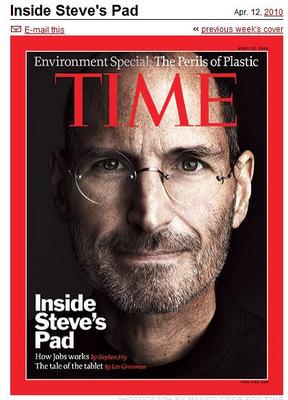


iPad以前にも、「__はジャーナリスムを救えるか?」というような見出しは何度も見てきたし、そのような救世主がいると信じられている。"Before the iPad came into our sights, there was already a series of headlines and desperate passages: will ______save journalism? There's this search for the savior, and the belief that there is one," Rosen said.
しかし問題はガジェットではなく、コンテンツなのです。詳しく言うなら、コンテンツをいかにブログやTwitter、FacebookやYouTubeに適応させていくかです。そう、伝統的メディアはコンテンツ、すなわち情報が豊富で、価値の高い、民主主義に不可欠なものをを生み出す存在です。しかし、彼らの多くは、より大きなニュースのエコシステムに適合することに失敗しています。そしてそのエコシステムはニュースを生み出す少数精鋭だけではなく、それを消費するオンラインのマスによって加速度的に増大しているのです。But as we've noted before in this blog, it's not just about the gadget, it's about the content. Or, more specifically, how the content adapts and evolves in our blogging, tweeting, Facebooking, YouTubing times. Yes, the so-called legacy media companies (print, television, radio) create content -- informative, valuable content, many of it crucial to our democracy. But, for the most part, they fail to realize how their content fits in a larger news ecosystem, one that's being increasingly driven not just by the select few who create the news but the online masses who consume it.
インターネットは、コミュニケーションを通じて知識をシェアすることを無料にしました。情報シェアの限界原価はゼロなのです。ジャーナリストはどうすれば付加価値をつけられるかを問わねばなりません。
"The Internet provides the means for communities to share what they know. At no cost. The marginal cost of sharing information is zero," Jarvis said. "We as journalists then have to ask how we add value to that."
私たちは変革の時にいます。「メディア(media)」のなかの「私(me)」が絶え間なく、効率的にその力を誇示するエキサイティングな時代に。メディアの変革は、この現実を理解することにかかっています。美しく輝くiPadではなく。
We're living in a transition stage -- a very exciting time in which the "me" in "media" continually and more effectively flexes its muscles. The media's resurrection depends upon its understanding of that reality. Not on the shiny new iPad.
Posted via email from Capote's Connected Communications - 続・広報の視点